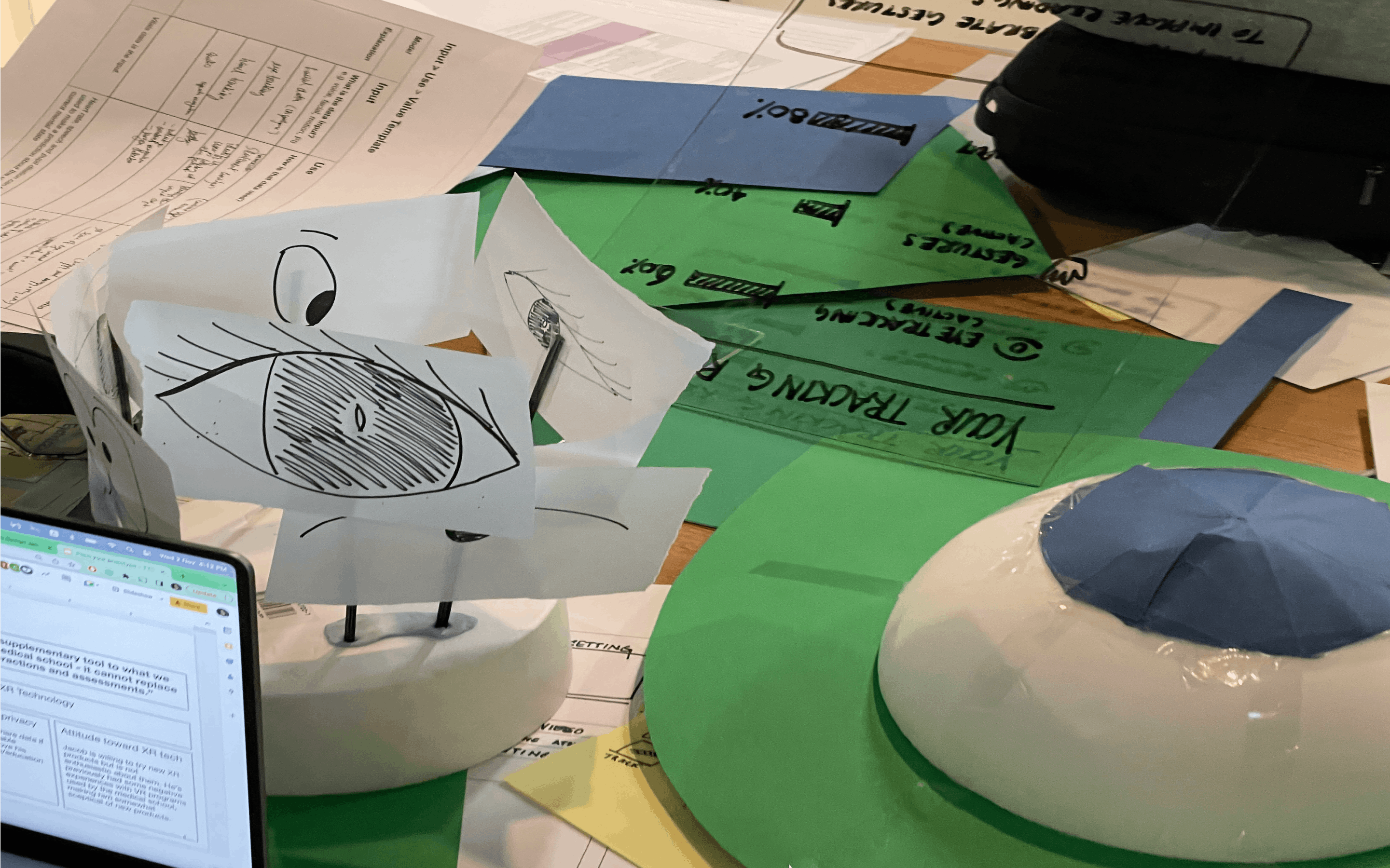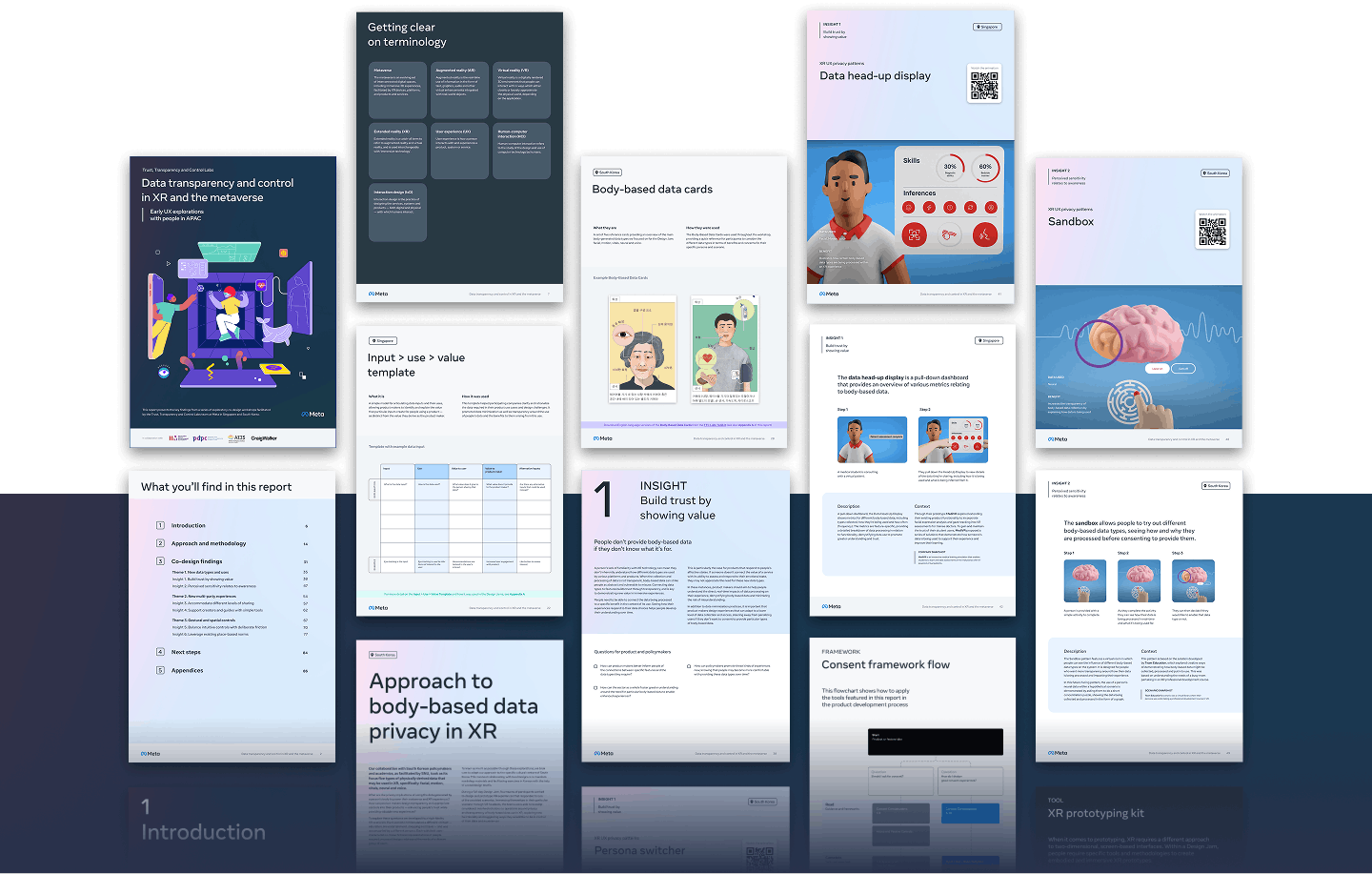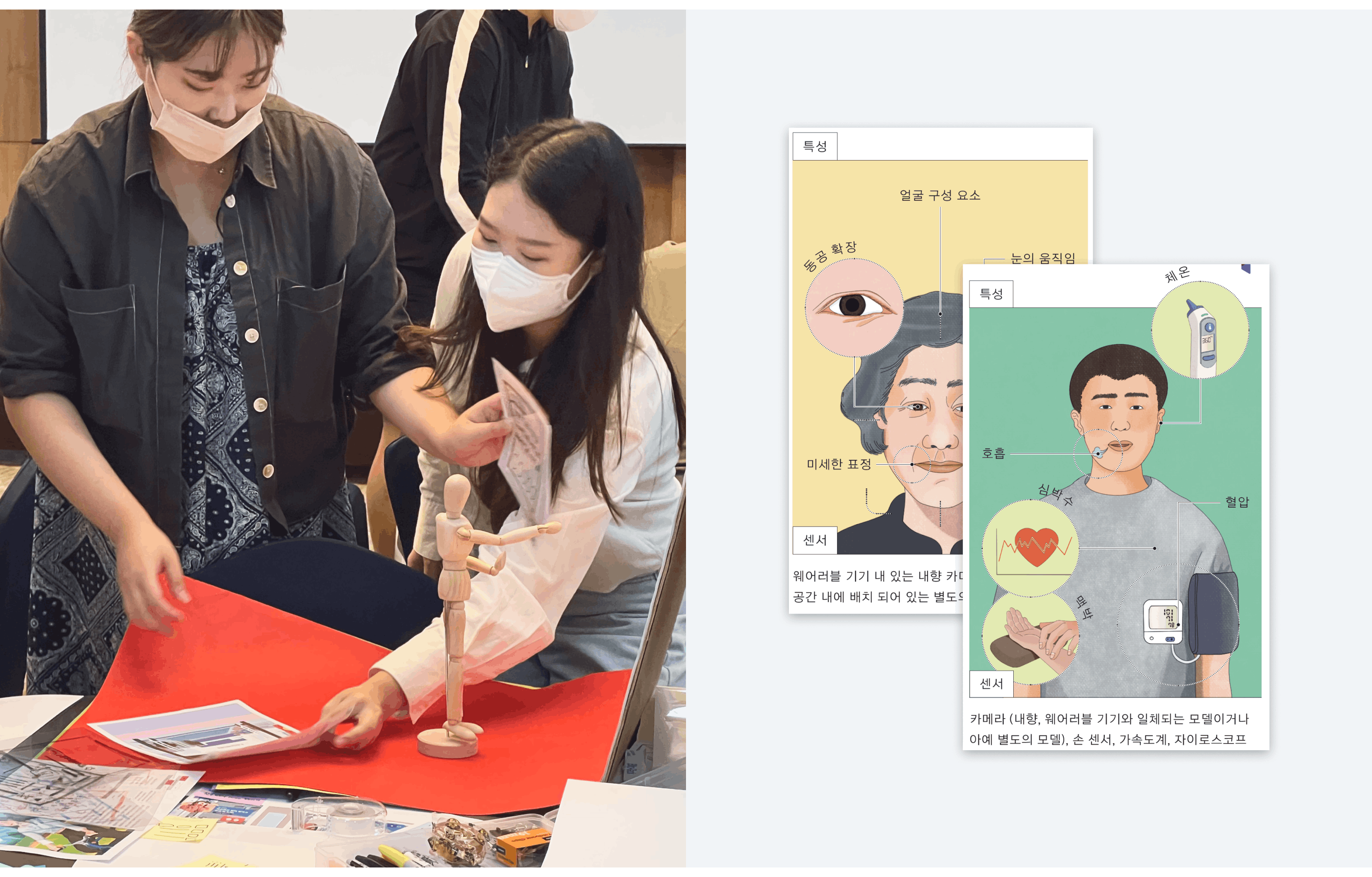Rethinking Consent in a World of Embodied Data
Developments in AR and VR give rise to important questions about privacy, transparency and control in immersive experiences.
As AR and VR technologies evolve, they bring with them new forms of data, from gaze and gesture to posture, expression and presence. These immersive experiences raise important questions about privacy, transparency and control. Existing consent models, designed for clicks and screens, fall short when information is gathered passively from the body. In partnership with Meta’s Trust, Transparency and Control Labs (TTC Labs), Craig Walker set out to explore what responsible data use should look like in the metaverse and how designers, technologists and policymakers can respond to this shift.
Learn More
The project in numbers
3× More data is captured
15+ speculative scenarios
20+ Privacy patterns translated

Design Patterns that centre people, consent and privacy
With TTC Labs we co-authored a report outlining a variety of tools and frameworks to help policymakers and product makers design responsibly, centring privacy and consent. With the Metaverse being in its early stages, we need to understand the privacy implications of new data types and interaction modes and address these through best practice design and policy. View the report

Design Patterns that centre people, consent and privacy
In collaboration with TTC Labs, Craig Walker ran a series of Design Jams in Singapore and South Korea, bringing together startups, students, researchers and policymakers from across the region. Participants were encouraged to move beyond 2D interfaces and think through physical interaction. Using speculative scenarios, low-fi prototyping and storyboarding to explore how trust, consent and control might feel in immersive environments. This hands-on approach helped us test early ideas and challenge assumptions about how consent should work in virtual spaces.

Design Patterns That Help Teams Build Trust by Default
The outputs of the Design Jams were developed into a set of practical tools to support responsible product development in immersive technologies. These included consent frameworks, body-based data cards, and a collection of design patterns brought to life through 3D animation. Craig Walker co-authored a public report with TTC Labs to share these outcomes with a wider audience of designers and policymakers. The work continues to inform early thinking around consent, transparency and data use in emerging AR and VR experiences.
